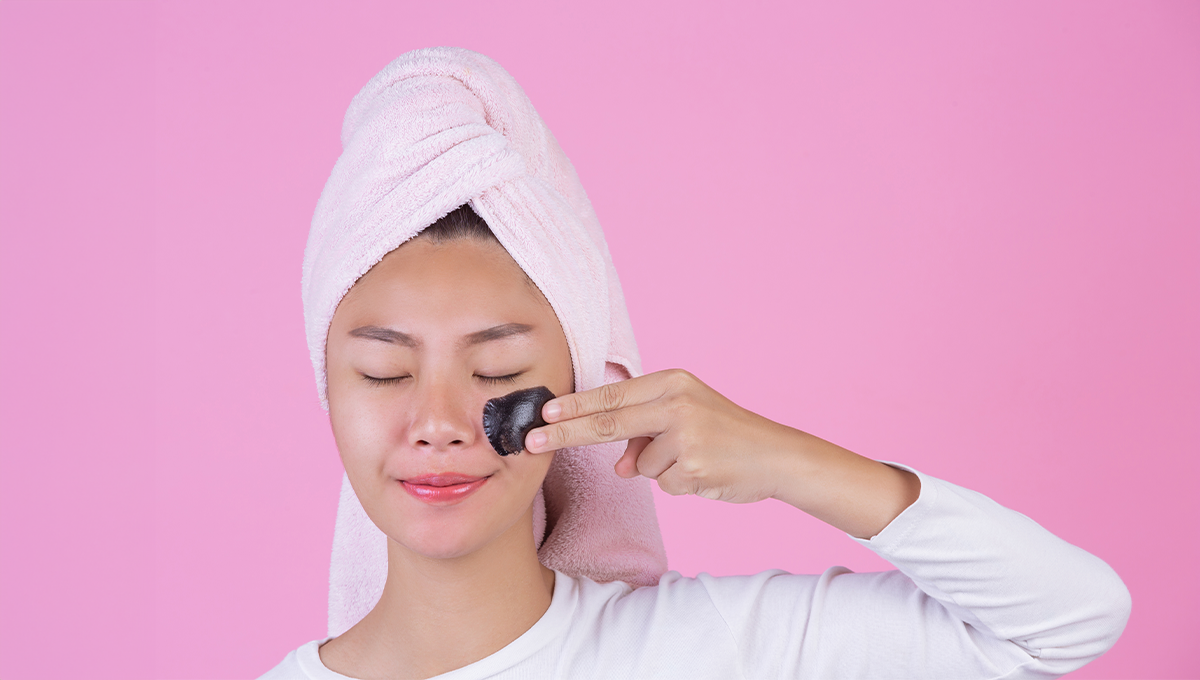 Blackheads are clogged pores filled with oil and dead skin cells. They turn dark when the clog reaches the surface and oxidizes. Unlike whiteheads, which are trapped under the skin's surface, blackheads are open to the air.
Blackheads are clogged pores filled with oil and dead skin cells. They turn dark when the clog reaches the surface and oxidizes. Unlike whiteheads, which are trapped under the skin's surface, blackheads are open to the air.
While squeezing or picking at blackheads is a big no-no (it can worsen inflammation and scarring), there are ways to address them. Blackhead extractor tools have become a popular choice, but are blackhead removers safe? Let's find out.
Understanding Blackhead Remover Tools
Knowing about the options you have for removing those stubborn blackheads is a must before using the tools. So, let's explore your options!
Comedone Extractors:
These metal tools come in various shapes and sizes. They are designed to gently pull out the contents of blackheads.
Pros
-
Precise removal
-
Long-lasting results
-
More effective than others
Cons
-
Requires knowledge for optimal use
-
Can damage the skin if done carelessly
-
Not ideal for a novice
Smart Unisex Blackhead Removal Device:
It’s your skin's new best friend. This smart tool provides multiple benefits in one solution - from enlarged pores to acne.
Pros
-
Smart solutions (with WIFI, camera)
-
Removes blackheads without hurting the skin
-
Suitable for all skin types
-
3 level adjustment free control
Cons
-
A little pricey compared to other blackhead extrators
Vacuum Blackhead Removal:
Vacuum removers are handheld devices that use suction to get rid of blackheads.
Pros
-
Unclog pores a lot faster
-
Works best when combined with a proper skincare routine
-
Easy to use
-
Painless
Cons
-
Can make skin feel harsh
-
Not as effective as comedone extractors
Blackhead Strips:
These strips adhere to your skin and lift out blackheads as you peel them off.
Pros:
-
Effective for surface-level blackheads
-
Beginners can try it
-
Painless
Cons
-
May not be effective for deep blackheads
-
Can irritate sensitive skin
Consider your skin type, comfort level, and blackhead severity before choosing one of these options.
How Do Electric Blackhead Remover Tools Work?
Electric blackhead removers, also known as pore vacuums, use suction technology to target clogged pores. These handy tools have a small nozzle that you gently glide across your skin on the affected area. The nozzle creates a gentle vacuum force that helps loosen and remove oil and dead skin cells trapped within your pores. This can help clear out blackheads and minimize their appearance.
These tools work best on surface-level blackheads. For deeper clogs, they might not be as effective.
Are Blackhead Extractors Safe?
Blackhead remover tools are everywhere these days. You may be wondering “Should I use a blackhead remover tool?” Let's see what board certified dermatologists have to say:
Experts warn that improper use of blackhead remover tools can lead to more harm than good. Dr. Marisa Garshick, a dermatologist in New York City, says, "Using a comedone extractor without proper technique can cause inflammation, scarring, and even infection."
While some tools might seem easy to use, there are hidden dangers. Harsh scrubbing or excessive suction can irritate your skin, leading to redness and discomfort. In some cases, aggressive extraction attempts can even cause scarring.
Consider consulting a dermatologist for professional extraction or discussing gentler skin care options. They have the expertise and tools to remove blackheads effectively with minimal risk of irritation or scarring.
Common Mistakes When Using Vacuum Remover Tools
Blackhead remover tools can be tempting, but using them incorrectly can wreak havoc on your skin. Let's uncover the mistakes most people make when it comes to blackhead removal:
-
Putting too much pressure with a comedone extractor or using an electric tool on the highest suction setting can damage delicate skin and lead to broken capillaries.
-
Skipping proper cleansing before extraction leaves dirt and bacteria on your skin. This increases the risk of infection when you open up your pores.
-
Targeting every single blackhead in one go can irritate your skin. Extractions are best done sparingly and followed by calming skincare.
-
These tools are not magic wands. If a blackhead is not getting away, it is probably too deep for at-home extraction. Forcing it can lead to inflammation and scarring.
If you are unsure about using a tool, or if your blackheads are stubborn, play it safe and consult a dermatologist. They can recommend the best course of action.
Safe Practices for Using Blackhead Remover Tools
Thinking of giving blackhead remover tools a try? Let's look at some pro tips tips to minimize the risk of skin damage:
-
Cleanliness is Key: Always wash your hands and the tool with soap and water before use. This helps prevent bacteria from entering your pores.
-
Prepare Your Skin: Gently cleanse your face with warm water to open up pores. This makes blackhead extraction easier and lessens irritation.
-
Gentle Extraction: Use a light touch with comedone extractors, and avoid excessive pressure. For pore vacuums, start on a low suction setting.
-
Post-Extraction Care: After using the tool, apply a gentle toner and moisturizer to soothe your skin. Avoid touching the area to prevent further irritation.
-
Benzoyl Peroxide: Consider using a benzoyl peroxide-based spot treatment to help reduce inflammation and prevent future breakouts. Applying the strips is also important.
If you have persistent or severe acne, it is always best to consult a dermatologist for personalized advice and treatment options.
Alternatives to Blackhead Remover Tools
Now that you know everything about blackhead extraction tools, it is time to learn about some alternatives:
-
Topical Treatments: Products containing ingredients like salicylic acid or benzoyl peroxide can help exfoliate the skin, unclog pores, and prevent future breakouts. These options are generally gentler on the skin than manual extraction.
-
Professional Treatments: Dermatologists and estheticians offer a range of treatments for blackheads - from chemical peels, and microdermabrasion to extractions performed by trained professionals. These methods provide deeper cleaning and less risk of skin damage.
-
Home Care: A consistent skincare routine is essential. Regular cleansing, exfoliating, and moisturizing can help prevent blackheads from forming in the first place.
Have patience when dealing with blackheads. While it might be tempting to seek a quick fix, a long-term approach focused on gentle care and prevention is often the most effective strategy.
So, Is It Safe to Use Blackhead Removal?
Blackhead removal tools can be used safely with the right technique and care. And you need to weigh the potential risks against the benefits. For many people, a gentle skincare routine and professional treatments might be a safer and more effective approach to clear skin.
FAQs Section
Are blackhead removal strips safe?
Blackhead remover tools can be tricky. You need to get extra careful while dealing with them. Otherwise, it can cause permanent damage to your skin.
What is the safest way to remove blackheads?
There is no safer way to remove blackheads than following a skincare routine. Besides, you can use vacuum blackhead removers.
Do blackhead removers damage skin?
Yes, improper use of blackhead remover tools can lead to skin damage, including redness, inflammation, and even scarring.
Are blackhead vacuum removers safe to use?
While blackhead vacuum removers can be less invasive than manual extractors, they can still cause skin irritation if used incorrectly. Always adjust the setting on low suction and avoid overusing the device.


